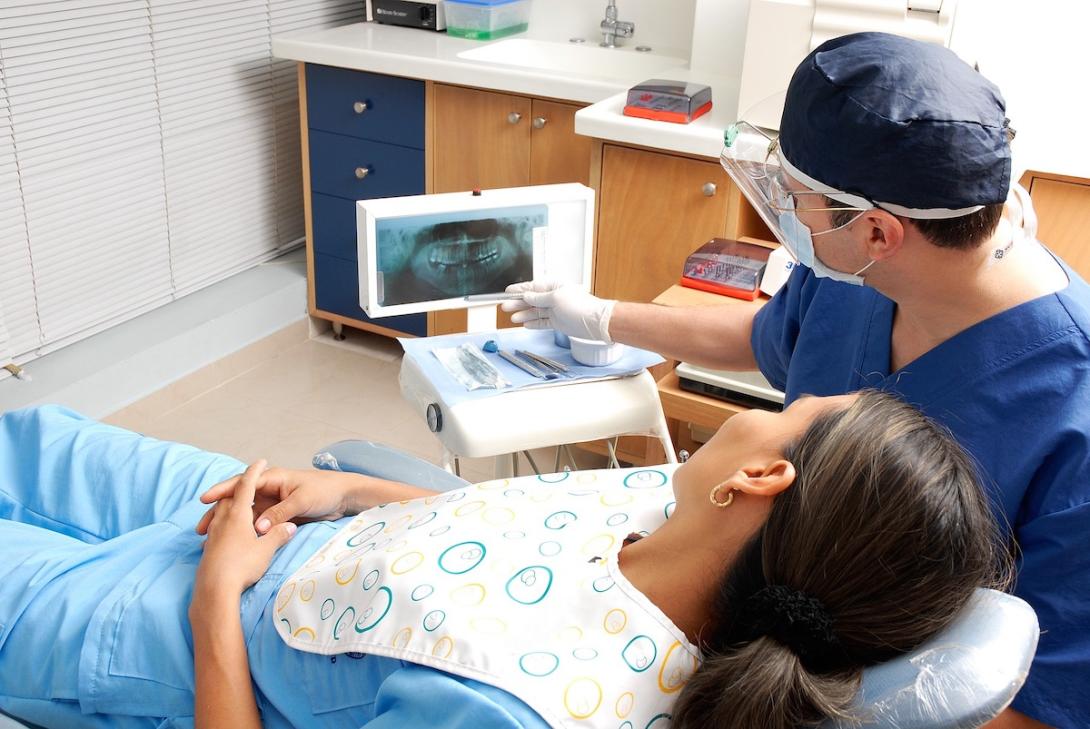
This article was originally published by Oregon Capital Chronicle.
The Oregon dental industry is asking lawmakers to put $20 million toward bolstering the number of widely needed hygienists and assistants.
House Bill 2979, discussed Monday in the House Behavioral Health and Health Care Committee, coincides with a need for dental assistants and hygienists statewide, and especially in rural areas and low-income communities.
Dental assistants and hygienists perform a variety of tasks, such as helping dentists during procedures and exams. Hygienists also are in charge of cleanings and screenings and serve as a vital link between dentists and the patient. New dental assistants earn about $20 to $23 an hour, while dental hygienists, who need more training, earn about $50 an hour.
Openings in the field are outpacing the number of students choosing the profession. A 2022 state report found that 9% of the state’s 5,480 dental assistant positions were vacant and that there were twice as many openings as newly certified professionals, with many trained staff leaving the industry. The strains and requirements of the pandemic led to an exodus of health care workers, including in the dental profession.
Supporters of the bill told lawmakers the state needs to build a training pipeline for people interested in the profession, starting with high school.
“For years dentists have experienced increasing difficulty recruiting and retaining dental assistants and hygienists,” said Eddie Ramirez, a public health dentist who spoke on behalf of the Oregon Dental Association, which represents more than 2,000 dentists in the state.
Ramirez works at Virginia Garcia Memorial Health Center in Washington County, a federally designated health clinic that primarily serves low-income patients, including those on Medicaid.
“These are critical members of the dental care team,” he said. “They perform a wide range of services from sterilizing and disinfecting instruments to cleaning and polishing patients’ teeth. Without adequate support staff, dentists are forced to cut back on our hours and are unable to serve as many patients which reduces access to care. I see this shortage and its impact firsthand, especially in underserved communities.”
Here’s where the $20 million would go:
$7 million would go to the Oregon Health Authority for incentives and grants that help recruit and retain dental workers in the state, including those that serve rural, low-income and tribal regions.$5 million to the Oregon Department of Education as grants to school districts that seek to start technical and career education programs for high school students.$5 million for grants to community college scholarships for students in dental assistant and dental hygienist programs.$2 million for the State Workforce and Talent Development Board to develop a free educational module introducing the dental assisting profession. Dental assistants can get their training on the job. $1 million to the Oregon Health Authority for an education and mentoring program for tribal members.
The bill has bipartisan sponsors, including dentists.
Rep. Cyrus Javadi, R-Tillamook, is a chief sponsor of the bill and a dentist on the Oregon Coast. He said the proposal would make it easier for people to access online training programs. He said the closest training program for his staff is two hours away.
“It’s too much of an ask for people who are interested in the dental profession to change their entire lives to move closer to these training programs,” he said.
Rep. Hai Pham, D-Hillsboro and a pediatric dentist, is another chief sponsor. He said the bill’s combination of incentives, scholarships and programs for high school students would create an investment package that would help dentists.
Broadly, the bill has wide support in the health care industry. But one part of the bill drew scrutiny.
Jill Lomax, dental assisting program chair at Chemeketa Community College in Salem, told lawmakers that they should reconsider the bill’s provision to put $2 million toward a training module for dental assistants, as similar programs already exist for on-the-job training at a reasonable cost.
GET THE MORNING HEADLINES DELIVERED TO YOUR INBOX
SUBSCRIBE figure, .tipContainer, .socContainer, .subscribeShortcodeContainer, .donateContainer {display:none !important;} .youtubeContainer { position: relative; padding-bottom: 56.25%; padding-top: 30px; height: 0; overflow: hidden; margin-bottom:12px; } .youtubeContainer iframe, .video-container object, .video-container embed { position: absolute; top: 0; left: 0; width: 100% !important; height: 100%; margin: 12px 0px !important; } .newsroomSidebar {width:35%;max-width:35%;padding:10px;border-top:solid 2px black;background-color:#d3d3d3;float:right;margin-left:50px;} .snrsInfoboxSubContainer {padding:10px;border-top:solid 2px black;background-color:#d3d3d3;} .halfwidth {float:right;width:50%;max-width:50%;} .indent2Container {margin-left: 1em;margin-bottom:1em; border-left: solid 1px black;padding-left: 2em;} @media only screen and (max-width: 600px) {.newsroomSidebar {max-width:95%;width:95%;margin-left:4%} .halfwidth {float:none;width:100%;max-width:100%;} }Oregon Capital Chronicle is part of States Newsroom, a network of news bureaus supported by grants and a coalition of donors as a 501c(3) public charity.